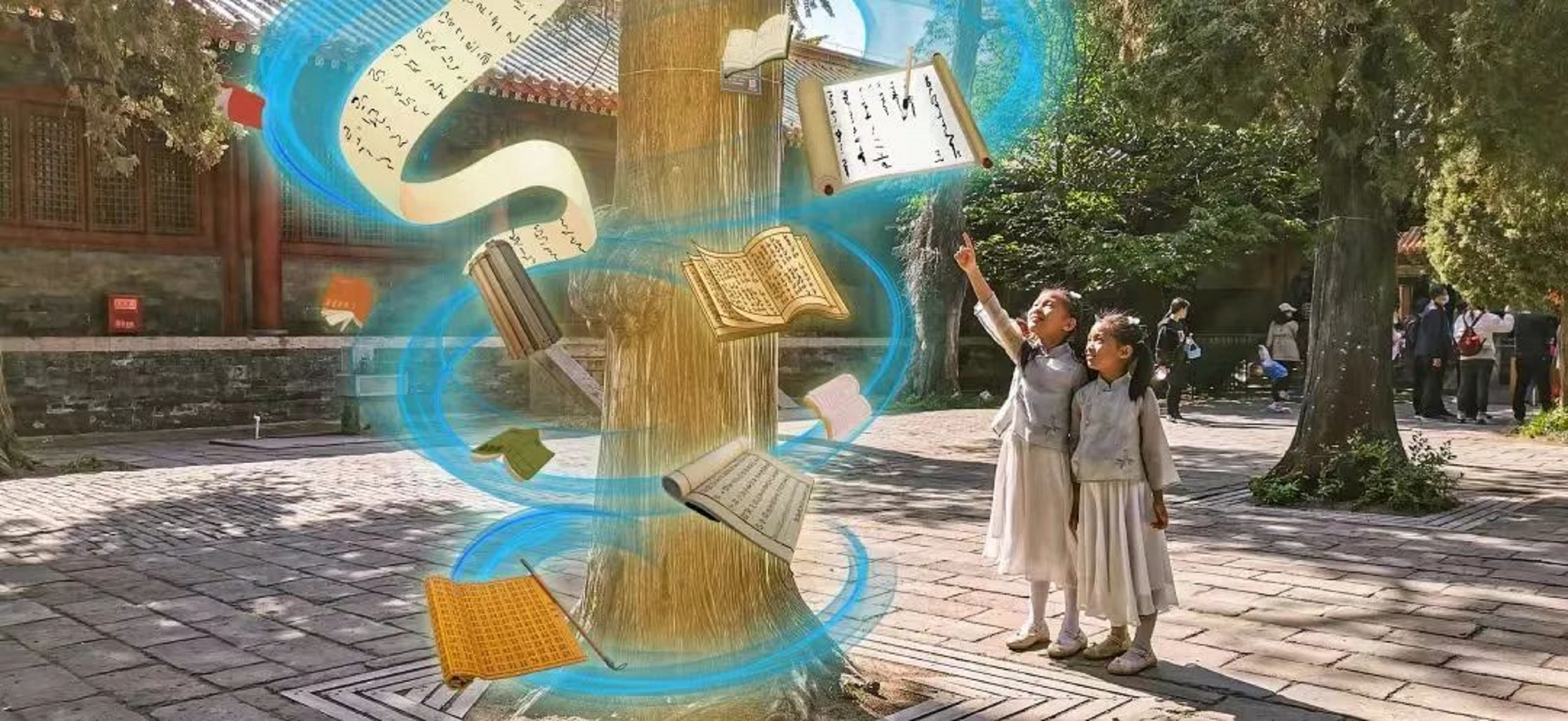Confucius 'Comes Alive' in His Hometown
By YU Haoyuan
Confucius, China's most famous teacher and philosopher, who lived over 2,500 years ago, has time traveled from the past to be with his students once again in his hometown of Qufu city, east China's Shandong province.
This modern Confucius classroom is located in the city's "Three Confucian Sites" (the Temple of Confucius, the Kong Family Mansion and the Cemetery of Confucius), which are dedicated to commemorating Confucius and Confucian culture. At these sites visitors can engage with Confucius and his students through Mixed Reality (MR) glasses.
When visitors put on a pair of MR glasses, Zai Yu, a leading disciple of Confucius appears in cartoon version. He serves as the tour guide for the visit, sharing historical anecdotes about Confucius, such as the Grand Ceremony of Worship of Confucius, Lecturing at the Apricot Altar, and the story of the Thirteen Stele Pavilions.
This MR technology, combined with AI, big data, the metaverse, computer vision and acoustics, integrates historical and cultural aspects of the location with holographic digital content. It creates a parallel world of the Three Confucian Sites for the visitor, corresponding precisely to the actual location.

The photo shows visitors wearing MR glasses triggering virtual digital content in specific areas of Three Confucian Sites, like going on a treasure hunting journey. (PHOTO: LIU WEIDONG & QU XUAN)
About five kilometers from the Three Confucian Sites is the Confucius Museum. As visitors enter the museum, they are greeted by a massive wall of books transformed into a projection screen showcasing key moments from Confucius' life. Diving deeper into the museum, they encounter a waterfall wall explaining the contents of Analects, a book of sayings and ideas attributed to Confucius and his contemporaries.
For the curious wanting to ask questions, there is also an interactive exhibit called Confucius Q&A. By using a large touchscreen, visitors can tap on the dialogue box to send messages to Confucius, which allows visitors to listen to Confucius' answers in real-time.
The sightseeing experience of Confucius is a great example of the marriage between technology and culture. Modern digital capabilities have given a new vitality to Confucian culture, attracting tourists from across the globe. With such technology being increasingly integrated into sightseeing, visitors can engage more directly with cultural relics, gaining a deeper understanding of the stories behind them.







